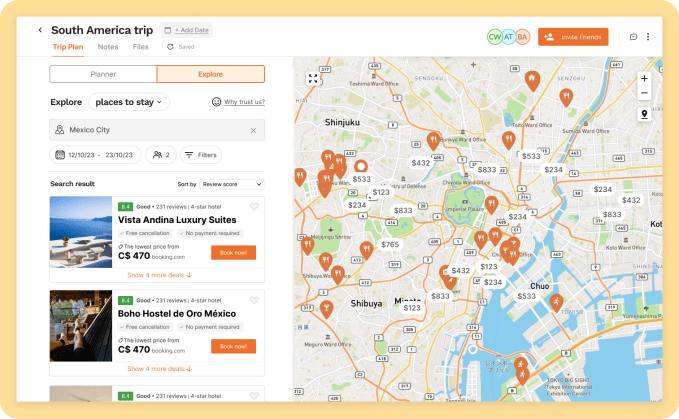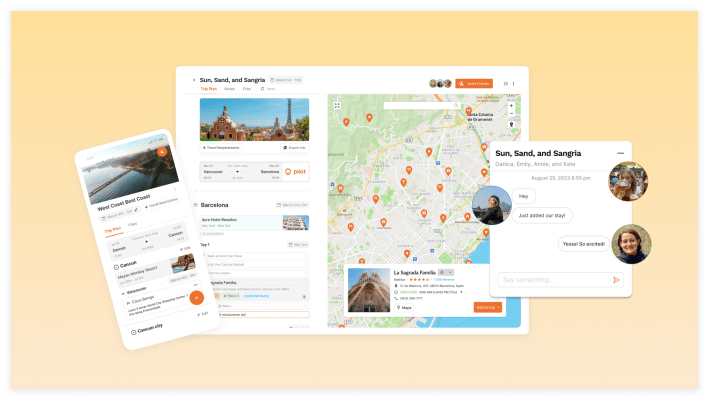Pilot, a Vancouver-based startup, wants to connect people via travel and become “the hub of the global travel experience.” To do that, the company has built an all-in-one social trip-planning platform powered by AI to help people discover, plan, book and share trips with friends. The startup is part of the current Battlefield 200 cohort, which exhibited at TechCrunch Disrupt 2023 in San Francisco last week.
Founder and CEO of Pilot Connor Wilson, a serial entrepreneur, came up with the idea of Pilot in 2019 while traveling around Europe. Just after the start of the COVID-19 pandemic in 2020, when no one was traveling at all, he set up the outfit with a group of four founders. The beta of the app launched in 2022, and without any proactive marketing, Pilot quickly picked up 5,000 users. Now, that figure — again, with no marketing to date — has ballooned to more than 20,000.
Wilson believes the strong take-up has been because Pilot is filling a gap in the market.
“The traditional approach [of travel planning] is very siloed, rigid and surprisingly has no element of social connection that is a big part of traveling,” he said in an interview. “So, we’re starting from the travelers’ perspective and embracing collaboration and personalization from the technical side.”
But it is not building a social network, Wilson stresses. Pilot is more like “building consumer software with social functionality, closer to Google Docs, Notion and Strava than Facebook.”
Yes, yes, we know: there are a lot of AI travel apps out there already. Wilson counters that Pilot is not an app that allows users to meet new people to travel together, nor is it an AI-powered travel agency.
“Users are not meeting new people via the Pilot app in a blind fashion. They control who they share their plans with,” Wilson said. “Our platform gives them tools to help them connect with and collaborate with their friends, family, and partners through travel.”
Its AI trip planner, called Quickstart, generates an itinerary with personalized recommendations based on the user’s traveling parties’ preferences and allows users to request any edits or changes via chatting with the AI. Users can sign up, click “Create a trip,” and select specific interests they want to include with a couple of clicks. The platform helps users book stays and flights. In the future, the company will allow users to share their trips on its blog.
“It’ll remind people of ChatGPT at first, but the visual layout and robust recommendations are what then make it feel unique,” Wilson said.

Image Credits: Pilot
Pilot works on affiliate mode: it’s free for consumers to use, and the company earns commissions from vendors when users book their travels through the Pilot platform. That being said, revenue has not been its focus now. “We’ve been building the platform to plan trips on and growing our community,” said Wilson. “This has set us up to now explore the limitless opportunities for monetization.”
Its web app is available to access worldwide, serving English-speaking countries; its mobile app is coming out later this year, he added. Pilot intends to expand further to the Latin American and Asia markets for travelers.
The outfit aims to benefit all types of travelers, but now its users are primarily underserved travelers. “Those that love to travel in groups of friends and backpackers, digital nomads, and remote workers looking to make the most of their shared experiences,” Wilson says.
Pilot was also a part of the Creative Destruction Lab’s accelerator program this year.
Pilot, which has raised roughly $650,000 from angel investors, is now looking to raise $4 million to focus more on building out its social side of the platform.
